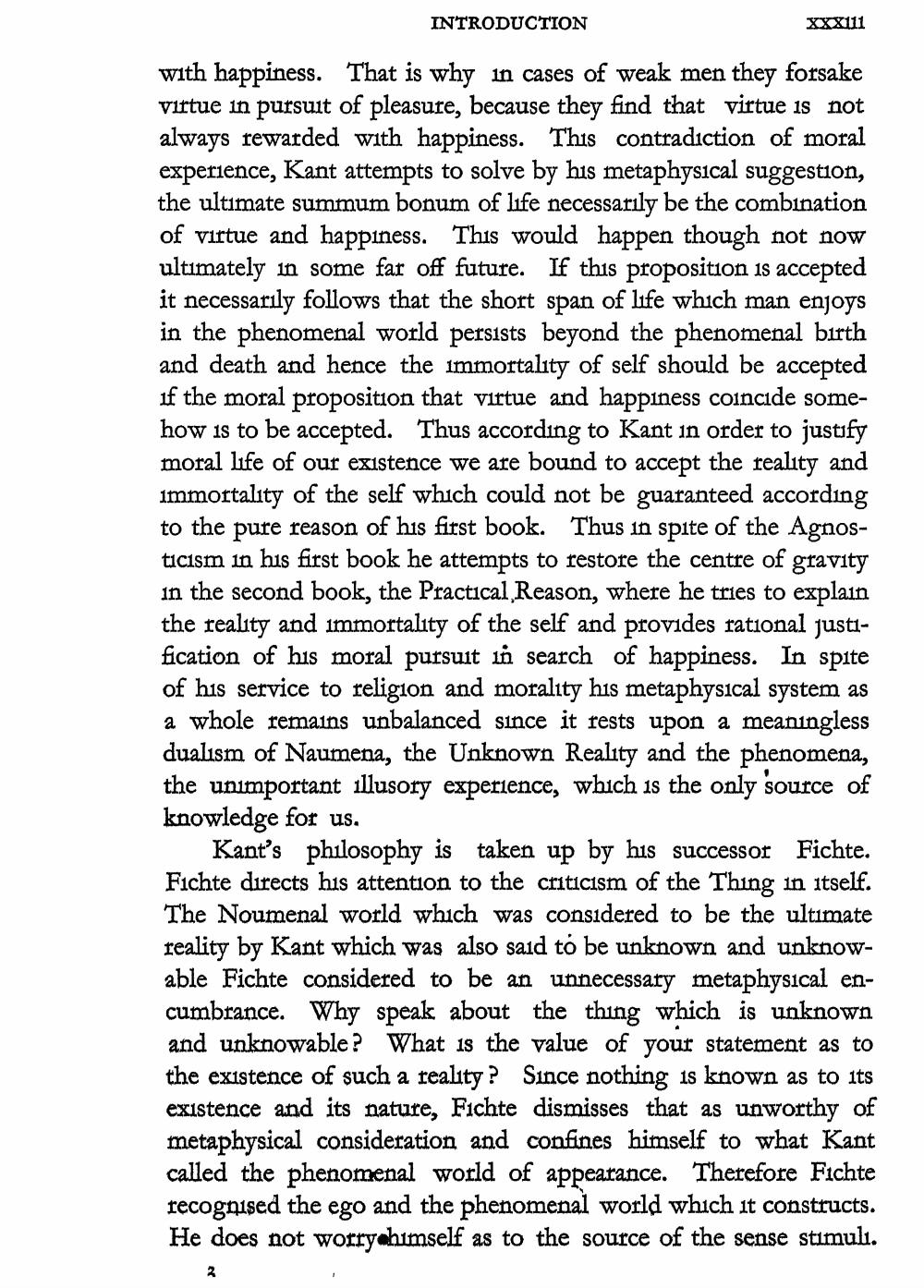________________
INTRODUCTION
Xxx111
with happiness. That is why in cases of weak men they forsake virtue in pursuit of pleasure, because they find that virtue is not always rewarded with happiness. This contradiction of moral experience, Kant attempts to solve by his metaphysical suggestion, the ultimate summum bonum of life necessarily be the combination of virtue and happiness. This would happen though not now ultimately in some far off future. If this proposition is accepted it necessarily follows that the short span of life which man enjoys in the phenomenal world persists beyond the phenomenal birth and death and hence the immortality of self should be accepted if the moral proposition that virtue and happiness coincide somehow is to be accepted. Thus according to Kant in order to justify moral life of our existence we are bound to accept the reality and immortality of the self which could not be guaranteed according to the pure reason of his first book. Thus in spite of the Agnosticism in his first book he attempts to restore the centre of gravity in the second book, the Practical Reason, where he tries to explain the reality and immortality of the self and provides rational justification of his moral pursuit in search of happiness. In spite of his service to religion and morality his metaphysical system as a whole remains unbalanced since it rests upon a meaningless dualism of Naumena, the Unknown Reality and the phenomena, the unimportant illusory experience, which is the only source of knowledge for us.
Kant's philosophy is taken up by his successor Fichte. Fichte directs his attention to the criticism of the Thing in itself. The Noumenal world which was considered to be the ultimate reality by Kant which was also said to be unknown and unknowable Fichte considered to be an unnecessary metaphysical encumbrance. Why speak about the thing which is unknown and unknowable? What is the value of your statement as to the existence of such a reality? Since nothing is known as to its existence and its nature, Fichte dismisses that as unworthy of metaphysical consideration and confines himself to what Kant called the phenomenal world of appearance. Therefore Fichte recognised the ego and the phenomenal world which it constructs. He does not worry himself as to the source of the sense stimuli.




